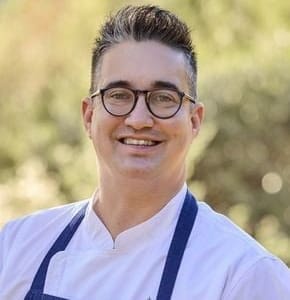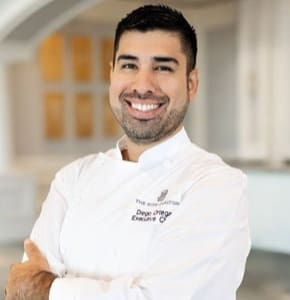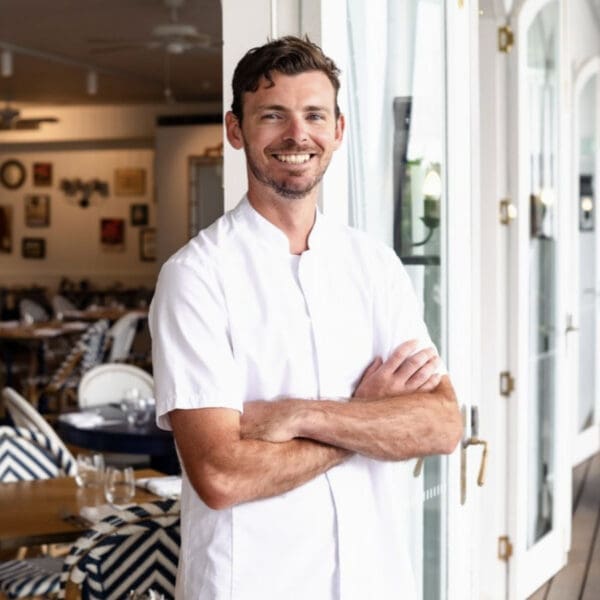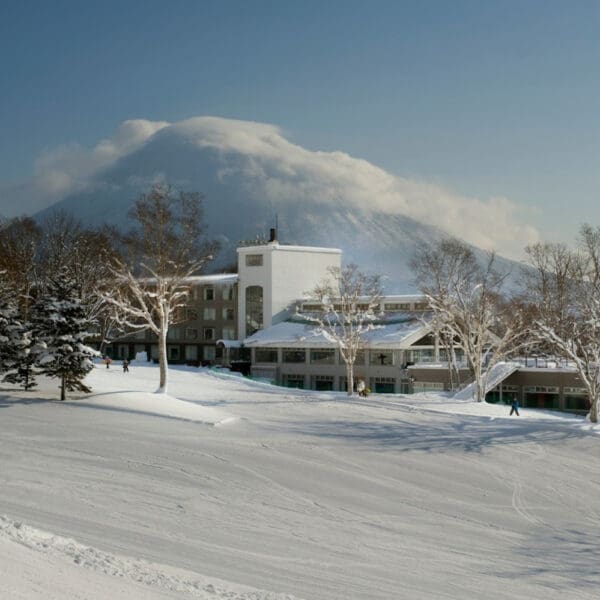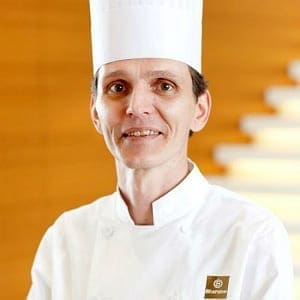
A futuristic landscape deeply rooted in tradition, the great nation of Japan will always be a fascination for travellers. Visiting for the first time just recently, every aspect of the society offers key points of contrast to its Western counterparts, as well as numerous lessons to improve your sense of hospitality.
While everyone knows that Japan’s culinary fare is quite different from that of other cultures, it’s even more interesting to hear from a chef with a North American background who has come to master the country’s food preparation style. Akin to learning a second language, Food & Beverage Director and Executive Chef Mervin McLeod at the Sheraton Grand Hiroshima Hotel has worked at properties across North America before crossing the Pacific to study Japan’s artful approach to cuisine.
Hailing from a small farming town in central Saskatchewan, Chef McLeod was raised on farm-to-table comfort foods before working across Canada at a variety of high-end restaurants. Seven years later at the prime age of 26, the opportunity arose to travel overseas. And so, armed with only four words of Japanese, he made his first trek to the northern city of Sapporo. Even though his career would subsequently take him all across Europe, something deep down was always drawing him back to Japan where he came to work in Kyoto before landing in the city of Hiroshima.
As Chef McLeod and I agree, one needs to experience this land to truly understand the allure of the culture, the people and the food, with many great insights brought to light during our time together.
What do you see as the key differences between Japan and North America insofar as management approach, staffing and guest relations?
Hospitality is part of the essence of Japan’s culture as is the persevering drive for success: both of which are ever-present in the management style. This is also reflected through associate engagement where supervisors take a personal role in every team member’s work. As for guest service, this is where the culture truly shines. Our front desk associates come out from behind the counter when guests approach and lead them back to the desk. This is always followed by a deep, gracious bow as guests leave the property.
Tell us briefly about your property
The Sheraton Grand Hiroshima Hotel is a 238-room property connected to the Shinkansen bullet train station. The first built of the rebranded design and styled Sheratons opened in early 2011. Our premier Japanese restaurant, Miyabi-tei, offers teppanyaki-style cuisine in addition to housing a sushi counter and a traditional kaiseki (multi-course) menu. Next, Bridges is our all-day signature buffet and a la carte restaurant where the menu changes monthly to help attract locals and present something fresh to returning travellers. As for guests’ reactions to all this, I’ve lost count how many positive comments are somewhere along the lines of, ‘We can’t believe this is a Sheraton!’
How do you imbue a Japanese culture into your property’s F&B program?
We have created SOPs for service training and use Marriott standards as a baseline, where we always try to exceed the quality of expected service by going that extra step. Japan is a culture built on harmony; the people do not place themselves first, meaning that true service comes naturally. There is an old word in Japanese omotenashi that basically means to ‘go the extra mile’ and this is reflected throughout the course of daily life. An example I’m fond of that demonstrates this is the one time when I rode my bicycle to the barber, only for it to start raining and, upon exiting after the haircut, the barber rushed ahead of me to wipe the seat. It’s these little touches that make all the difference. Moreover, there’s no tipping here in Japan; the service comes out of duty and pride of work.
How do you manage Japanese and Western taste profiles?
We have a wide variety of guests here, from international tourism to business-related stays as well as locals. The skillset of Japanese chefs is of the highest level, so we can provide a dining experience that always wows this diversity of customers. Breakfast service is vital to establishing this inclusiveness, especially for a guest who has been on a three-week journey through Japan and is missing some Western comfort foods like French toast or a Japanese businessperson with an important morning meeting who needs his or her traditional nourishment to power through the day. Our guests have come to love this East-West medley. As a specific example, we offer ‘Dashi Tamagoyaki’ which is a lighter, dashi-flavoured omelette than traditional western style omelette that we prepared fresh at omelette let station so guests may try and enjoy the diversity of tastes and styles.
What differentiates the Japanese catering and weddings businesses?
As with everywhere else, meeting planners and sales personnel work very hard to create the best for their customers, but it’s the sincere approach to the follow-up with clients that has made Japan such an impressive B2B location in the past few years. Weddings on the other hand can easily account for more than 30% of a hotel’s topline F&B revenues, and so the competition for this business is fierce. What differentiates Japan is that the bride and groom are not only serviced during the planning phases and the special day, but also well afterwards to secure their loyalty and to promote anniversary stays.
About the author
One of the world’s most published writer in hospitality, Larry Mogelonsky is the principal of Hotel Mogel Consulting Limited, a Toronto-based consulting practice. His experience encompasses hotel properties around the world, both branded and independent, and ranging from luxury and boutique to select-service. Larry is also on several boards for companies focused on hotel technology. His work includes four books ‘Are You an Ostrich or a Llama?’ (2012), ‘Llamas Rule’ (2013), ‘Hotel Llama’ (2015), and ‘The Llama is Inn’ (2017). You can reach Larry at larry@hotelmogel.com to discuss hotel business challenges or to book speaking engagements.


